AFOLABI
FG announces free train rides for Nigerians from Dec 20 to Jan 5
The Federal Government has announced a free train ride for any Nigerian wishing to travel to celebrate the Christmas festivities.
Minister of Information and National Orientation, Mohammed Idris, made the announcement on Monday while briefing journalists on the outcome of the Federal Executive Council, FEC, meeting.
He noted that the free train ride will commence from 20th December, 2024, and end on 5th January, 2025.
According to Idris, Nigerians can access the train rides on all the routes where train services are currently being rendered.
More details later…
FG renames University of Abuja
The Nigerian Government has renamed the University of Abuja after former military Head of State, General Yakubu Gowon.
The institution will henceforth be known as Yakubu Gowon University.
Minister of Information and National Orientation, Mohammed Idris announced the name change shortly after the last Federal Executive Council meeting for the year 2024, chaired by President Bola Tinubu.
He explained that the decision was taken in recognition of the enormous contribution of Gowon to nation building.
Details later…
EFCC nabs ‘792 crypto fraudsters’ in Lagos
The Economic and Financial Crimes Commission (EFCC) has arrested 192 foreign nationals for their alleged involvement in cryptocurrency investment fraud and romance scams, marking the largest such operation in the commission’s history.
Among those arrested are 148 Chinese nationals, 40 Filipinos, two Khazartans, one Pakistani, and one Indonesian. The suspects were apprehended in a surprise operation at their hideout, a seven-storey building known as the Big Leaf Building, located at No. 7, Oyin Jolayemi Street, Victoria Island, Lagos.
The EFCC revealed that the operation was the result of actionable intelligence and months of surveillance on the activities of the syndicate. The investigation confirmed that the foreigners used the building, which appeared to be a legitimate corporate office, to train Nigerian accomplices on how to execute romance and investment scams. They also used Nigerian identities to carry out their fraudulent schemes.
The facility, equipped with high-end desktop computers, contained several floors dedicated to criminal activities. On the fifth floor, investigators seized 500 SIM cards of local telecom providers, which were acquired for illicit purposes.
According to the EFCC, the foreign suspects recruited Nigerian accomplices to target victims primarily in the United States, Canada, Mexico, and various European countries through phishing schemes. The Nigerian operatives were given desktop computers and mobile devices, creating fake profiles to engage victims in fraudulent romantic and business conversations.
These accomplices communicated with victims using WhatsApp, Instagram, and Telegram, often pretending to be business professionals or romantic partners. The scammers encouraged victims to register on a fake online investment platform, www.yooto.com, where they were required to pay activation fees starting at $35 to open an account.
The EFCC’s successful operation marks a significant blow to the international syndicate involved in these scams.
Details later:
Benin Republic electoral officials visit INEC ‘to learn from Nigeria’
A 12-member delegation from Benin Republic’s Autonomous National Electoral Commission (CENA) has visited the Independent National Electoral Commission (INEC) on a study tour.
The delegation, led by Sacca Lafia, CENA president, included national commissioners, directors, and senior staff.
They were received on Monday by Mahmood Yakubu, INEC chairman, alongside other commission members at INEC headquarters in Abuja.
The visit, according to Lafia, was aimed at learning from Nigeria’s electoral processes and best practices as Benin Republic prepares for its upcoming 2026 elections.
Speaking at the event, Yakubu highlighted the significance of the visit and the unique challenges CENA faces ahead of the polls.
“Early last month, we received a letter from CENA indicating its interest to undertake a study visit to INEC Nigeria as they prepare for what they described as their most complex election in 2026,” he said.
Yakubu explained that CENA will, for the first time, conduct three elections in three months. Legislative and local elections are scheduled for January 2026, with the presidential election to follow in April 2026.
He said INEC had prepared a detailed programme to address the delegation’s interests.
“In particular, CENA is interested in the legal framework for elections in Nigeria, the design and printing of election materials and forms, the recruitment and training of poll officials, election budgeting and mode of payment to different service providers, security during elections, the use of technology, the accreditation of local and international observers, engagement with electoral stakeholders and other aspects of Nigeria’s electoral experience,” Yakubu said.
He said INEC officials from various departments will brief the delegation during their visit, covering all aspects of the electoral process.
Yakubu assured the team of full access to resources and documentation to support their preparation for the 2026 elections.
Below are pictures from the visit.
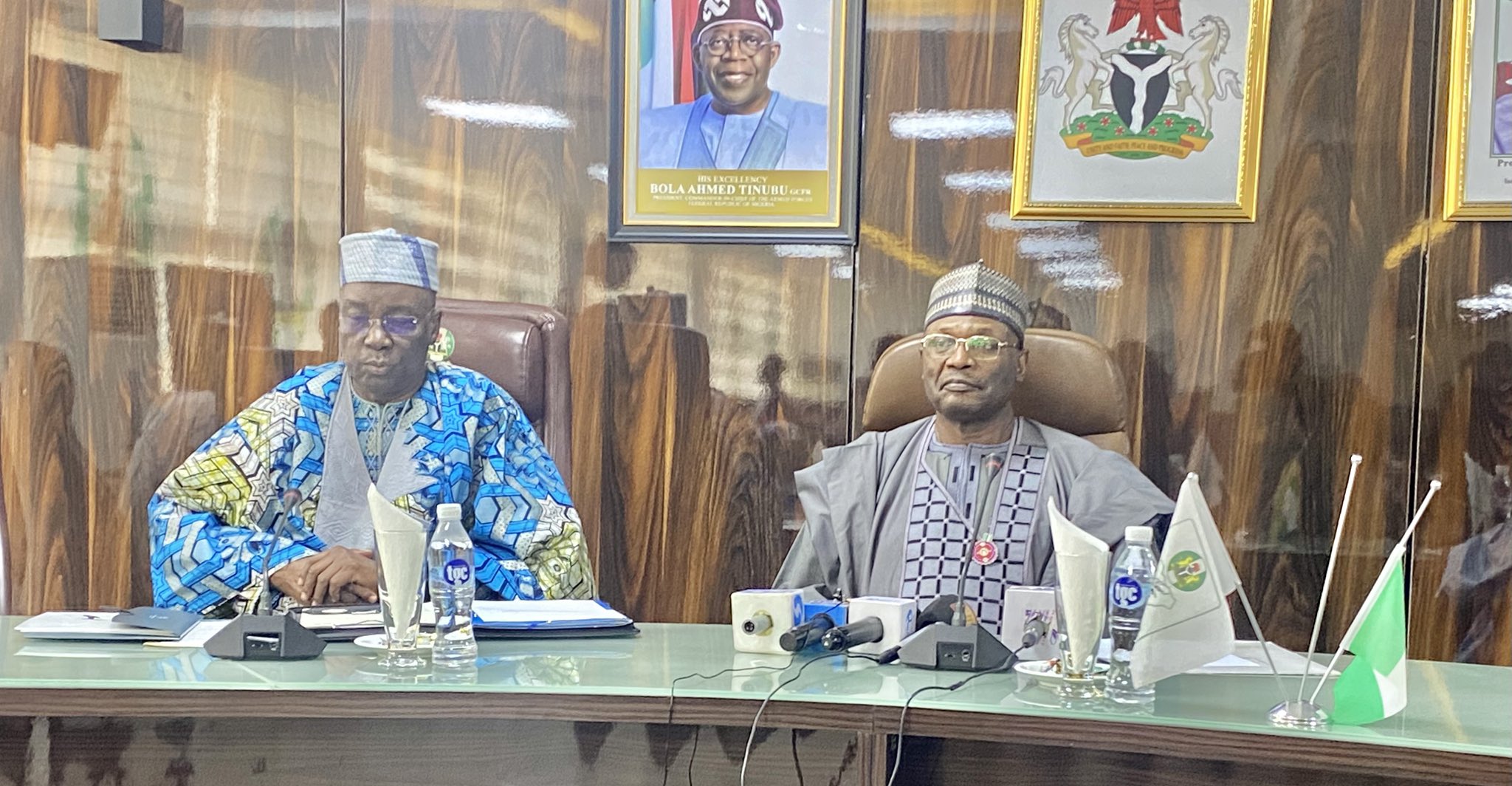
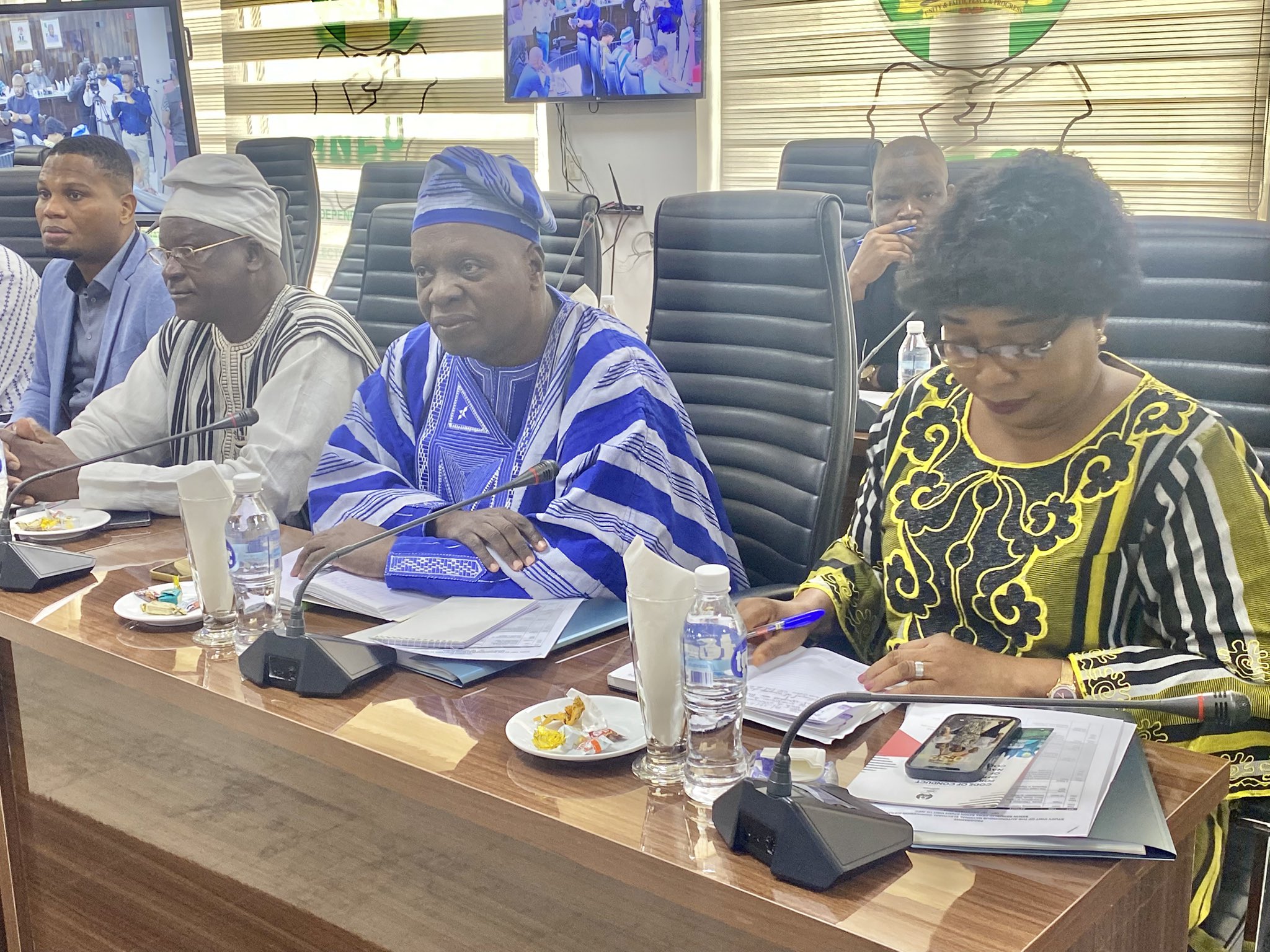
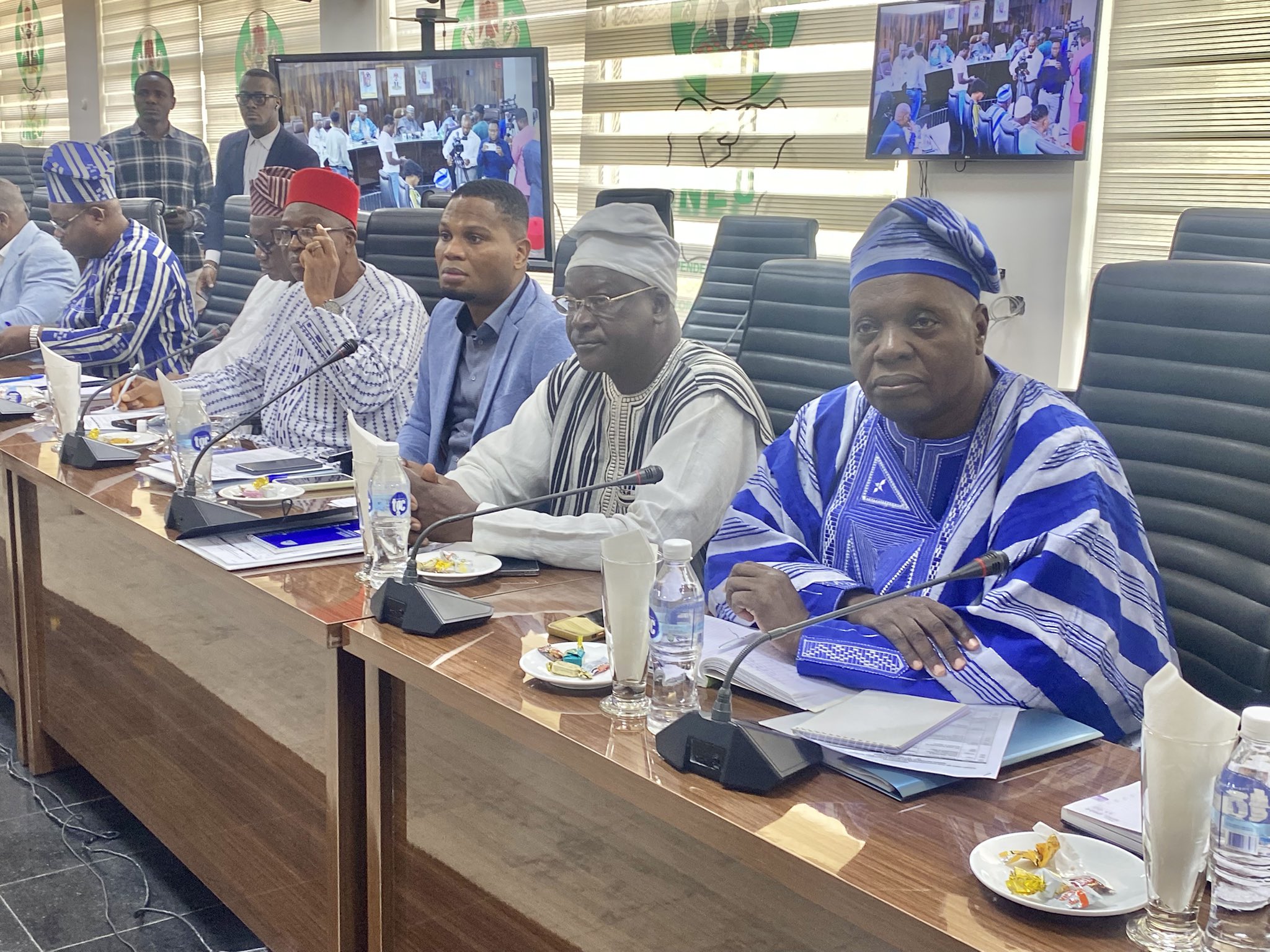
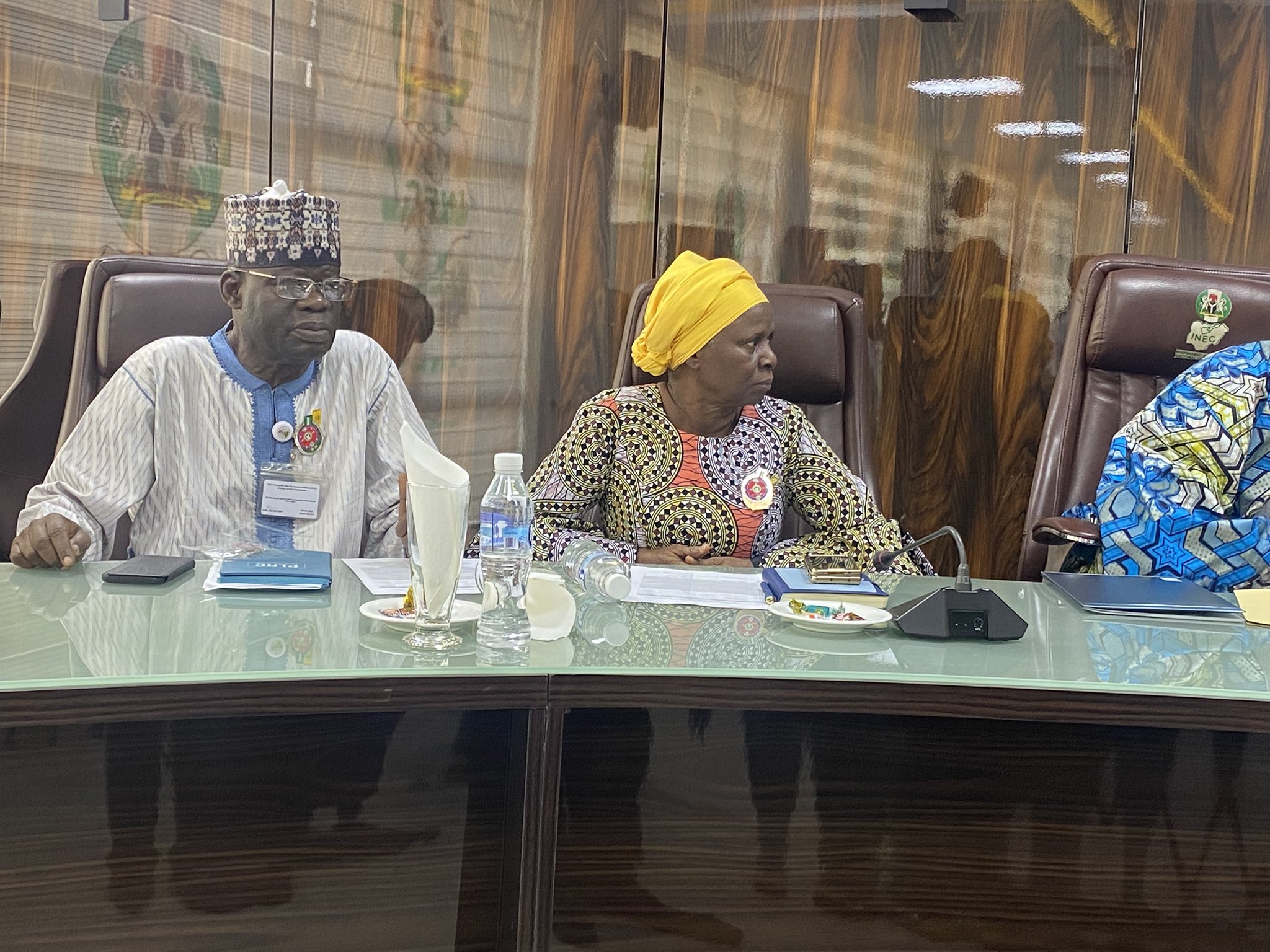
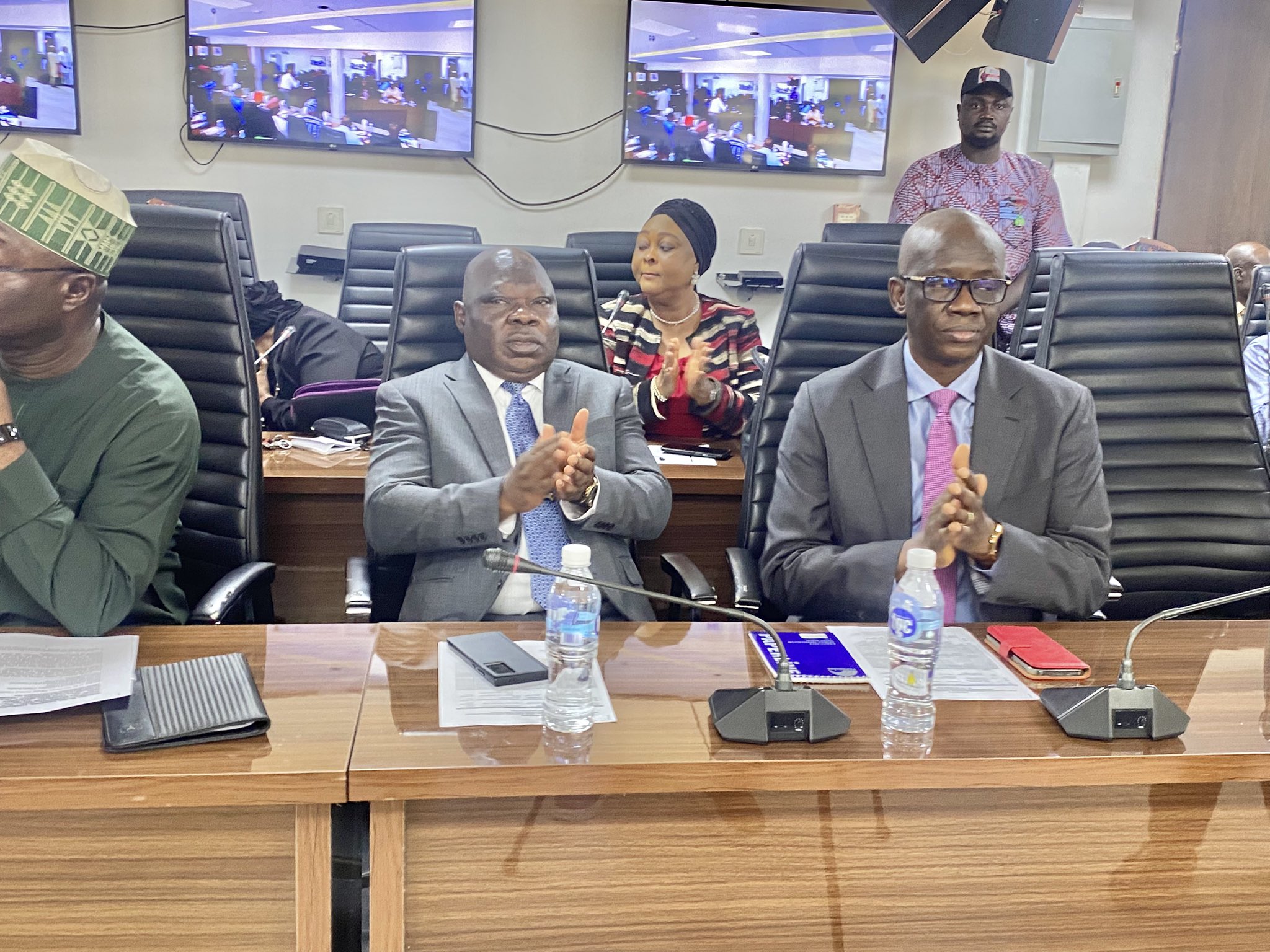
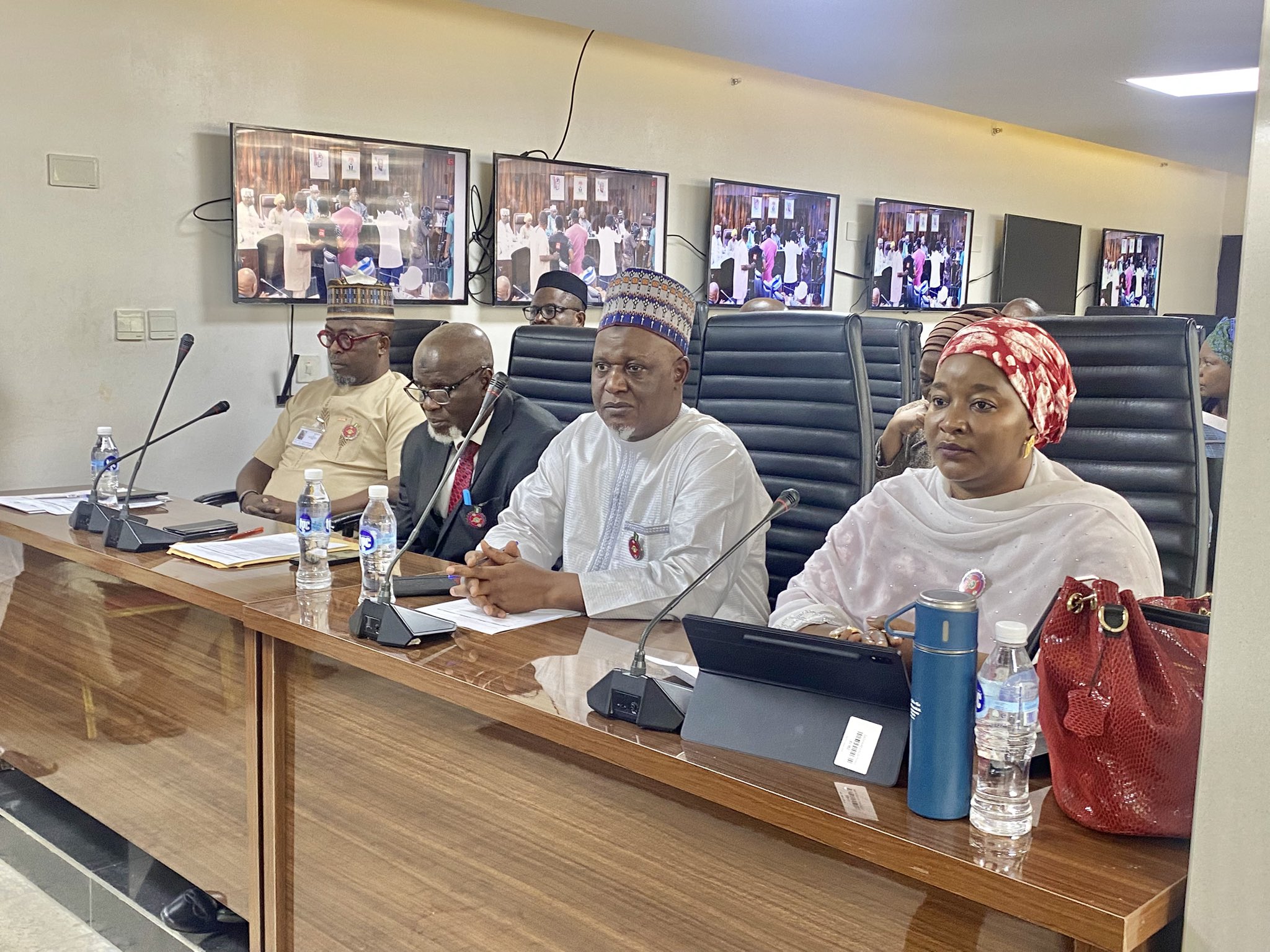
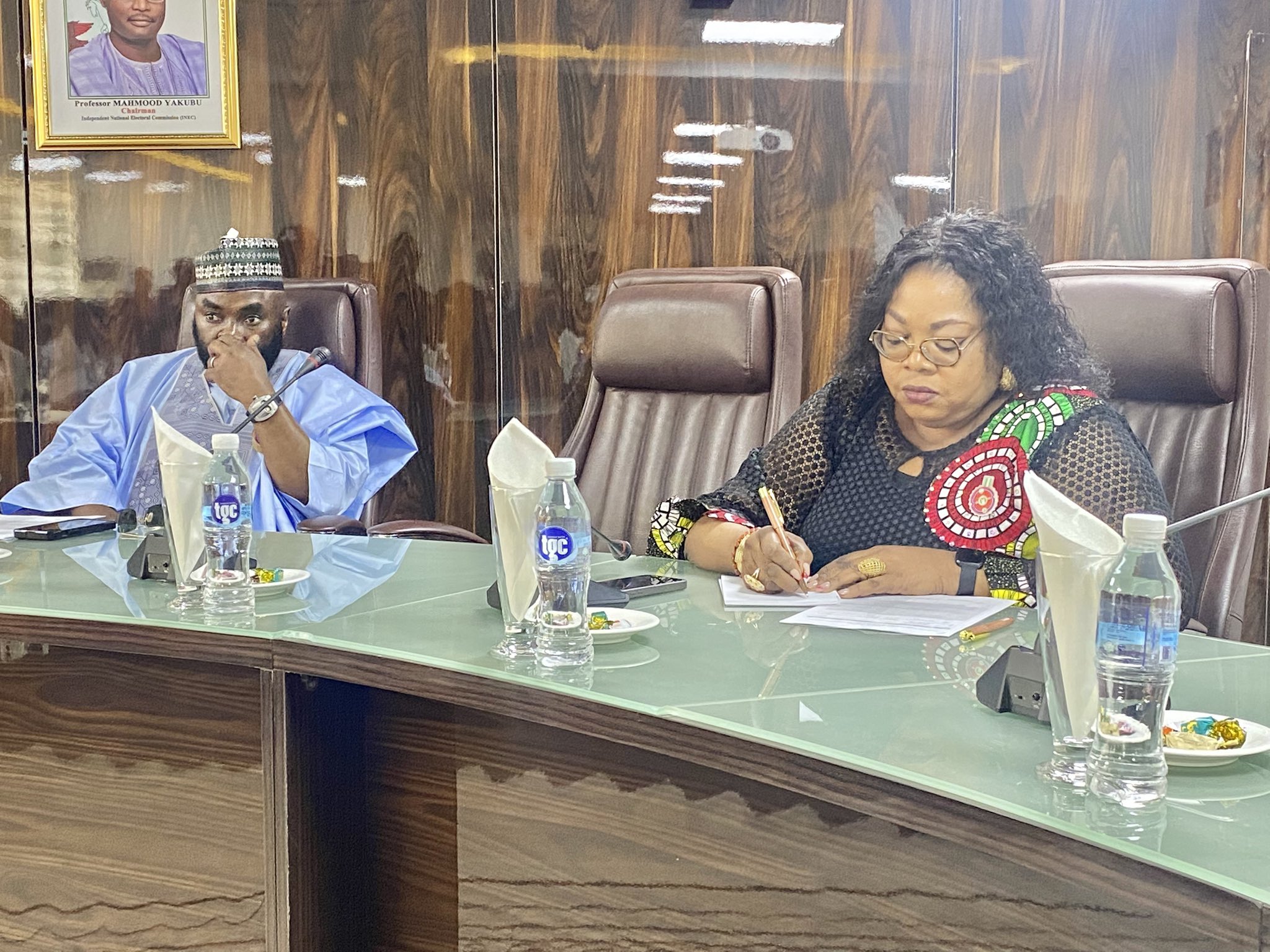
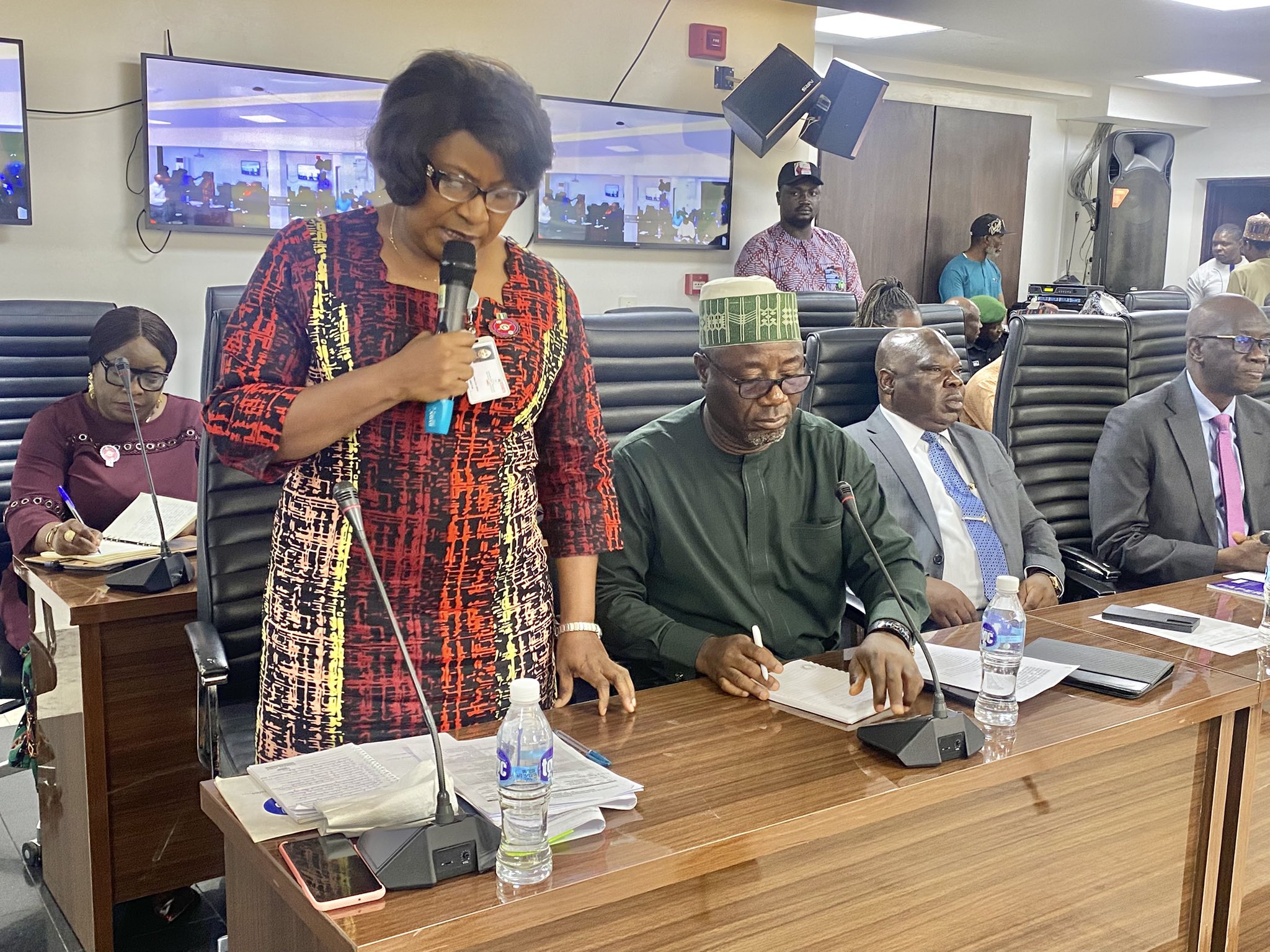
Presidency Reacts to Kemi Badenoch’s Story About Nigeria Police
More Hardship As Nigeria’s Inflation Rate Climbs to 34.60% In November
Nigeria’s inflation rate has risen from 33.88 percent in October to 34.60 percent in November.
The National Bureau of Statistics (NBS) disclosed this in the November Consumer Price Index and Inflation (CPI) report released on Monday.
According to the report, the increase in November was by 0.72 percent. The report showed an increase of 6.40 percent when compared with the report of November 2023.
“In November 2024, the Headline inflation rate was 34.60% relative to the October 2024 headline inflation rate of 33.88%. Looking at the movement, the November 2024 Headline inflation rate showed an increase of 0.72% points compared to the October 2024 Headline inflation rate.
“On a year-on-year basis, the Headline inflation rate was 6.40% points higher than the rate recorded in November 2023 (28.20%). This shows that the Headline inflation rate (year-on-year basis) increased in November 2024 compared to the same month in the preceding year (i.e., November 2023),” it read.
However, the report showed that the increase in the average price in November was slower than in October 2024.
“Furthermore, on a month-on-month basis, the Headline inflation rate in November 2024 was 2.638%, which was 0.002% points lower than the rate recorded in October 2024 (2.640%).
“This means that in November 2024, the rate of increase in the average price level is slightly lower than the rate of increase in the average price level in October 2024,” it stated.
The report also disclosed that Nigeria’s food inflation was 39.93%.
Supreme Court Slams ₦5 Million On Ex-presidential Candidate For Challenging Tinubu’s Election
The Supreme Court in Abuja levied a fine of ₦5 million against Ambrose Albert Owuru, a former presidential candidate, for subjecting President Bola Ahmed Tinubu to harassment through a baseless and vexatious lawsuit.
Naija News reports that Owuru, who ran for the presidency in 2019 under the Hope Democratic Party (HDP) against former President Muhammadu Buhari, was mandated to remit the ₦5 million to Tinubu.
Justice Uwani Musa Aba-Aji issued this directive while dismissing Owuru’s latest suit, which sought the removal of Tinubu from Nigeria’s presidency.
In addition to the monetary penalty, the Supreme Court instructed its Registry to reject any future frivolous originating summons submitted by Owuru.
During the proceedings, Owuru, who asserted that he was a lawyer admitted to the Nigerian Bar in 1984, attempted to represent himself while donning his wig and gown.
He was subsequently ordered to leave the court room and to remove his wig and gown before being permitted to present his case.
After complying with the court’s orders, Owuru was questioned about his repeated appearances before the court, given that his previous suits had been dismissed on three occasions.
Despite his efforts to persuade the Supreme Court to hear his arguments, his explanations were deemed unconvincing.
Justice Aba-Aji remarked that Owuru’s behaviour was inappropriate for someone claiming to have over 40 years of legal experience. Ultimately, the court dismissed his suit and mandated him to pay ₦5 million to Tinubu.
More details shortly…
How Cabals Hijacked Buhari’s Presidency For Eight Years, Amassed Wealth — Ex-Minister Dalung
Former Minister of Youth and Sports, Solomon Dalung, has accused a powerful cabal of hijacking power shortly after President Muhammadu Buhari’s electoral victory in 2015.
Speaking on the Mic On Podcast on Sunday, Dalung explained that a cabal is “a group of ambitious individuals, often appointed by the president, who end up manipulating the presidency to serve their personal interests rather than the public good.”
According to him, shortly after Buhari’s victory, an influential group emerged unexpectedly and sidelined those who had actively campaigned for the president.
Dalung recalled how his access to Buhari was suddenly restricted, an event he described as the moment the cabal took control.
He recounted, “On the day Buhari was declared winner, I went to see him in the evening. To my surprise, I was blocked from entering his house — a house where, just a day earlier, I had stayed until 2 a.m. I had to make several calls before I was finally allowed access. From that day, it became clear that the cabal had taken over.”
Dalung criticized the role of Buhari’s supporters, noting that they went out celebrating, leaving the president exposed to those who “understood power” and had the capacity to take over the administration.
“These people, who understood power, took over and ran the government to their interest until eight years were gone,” he said.
When asked whether Buhari’s administration was influenced by a Congress for Progressive Change (CPC) cabal, Dalung dismissed the idea.
He argued that key CPC figures like Tanko Al-Makura were not part of the group controlling power.
“The CPC did not succeed in having a cabal. Instead, the government was hijacked by people who were not politicians but ‘like bandits who laid an ambush’ immediately after Buhari’s victory,” Dalung stated.
He claimed that the individuals who seized power in Buhari’s administration amassed substantial wealth and influence over the years, becoming some of the most powerful figures in Nigerian politics.
“Of course, they are very, very wealthy, and Nigerians should expect them. They are very powerful,” he added.
On the possibility of a similar situation in President Bola Tinubu‘s administration, Dalung suggested that the dynamics had evolved within the All Progressives Congress (APC).
He described the ruling party as a “sophisticated political machine” and likened it to a “zoo,” reflecting its complexity.
“It is the same APC we formed, but it is now more sophisticated. The party has become a complex political architecture, more like a zoo,” he remarked.
Despite making these bold claims, Dalung said he had no fear of retaliation. He revealed that he had survived over 10 assassination attempts, including one where his car was riddled with bullets by gunmen wielding AK-47 rifles.
“I’ve been into the struggle for 40 years. I’ve survived more than 10 assassination attempts. There was a time five people carrying AK-47s sprayed my car, and I am still alive,” he said.
He also shared accounts of previous attempts on his life, including efforts to poison his food and ambushes from armed attackers.
“I am not afraid of death. My mother confirmed to me that I will not leave this planet until the day ordained by God,” Dalung stated.
Northern Nigeria Grossly Underdeveloped – Sanusi
The 16th Emir of Kano, Muhammadu Sanusi II, has expressed deep concern over the significant developmental gaps in Northern Nigeria, particularly in education and agriculture.
He highlighted that these deficiencies have hindered the region’s progress and exacerbated its challenges.
Sanusi made these remarks on Saturday in Jos, Plateau State, during an event commemorating the 50th anniversary of the visit of Sheikh Ibrahim Nyass, founder of Faidha Tijjaniyya in West Africa.
In his address, the former Emir noted that despite its large population, the North has failed to harness its potential, particularly in agriculture, where most residents remain subsistence farmers lacking access to modern agricultural practices.
He called on leaders and stakeholders in the region to prioritize investments in education and agricultural development, emphasizing that these sectors are critical for uplifting the region’s economy and overall quality of life.
“The North must wake up. Our future depends on our ability to invest in education and adopt modern agricultural techniques to better the lives of our people,” Sanusi stated.
Sanusi also delivered a lecture on harmonious coexistence in multiethnic and religious communities. Reflecting on Sheikh Nyass’s historic visit 50 years ago, he lauded the Senegalese cleric’s role in fostering peace among Muslims and non-Muslims in the former Benue-Plateau State.
He recalled that Sheikh Nyass’s visit was facilitated by the then Head of State, General Yakubu Gowon, and supported by his grandfather, Muhammadu Sanusi I, with permission from the state governor at the time, J. D. Gomwalk.
While commending the current administration in Plateau State for supporting the Muslim community, Sanusi urged Muslims to collaborate with the government to promote peace and development actively.
“Peace and cooperation are essential for sustainable growth and unity in our society,” he added.
How N20,000 stopped me from going to university – Ice Prince
Nigerian rapper Panshak Zamani, popularly known as Ice Prince, has opened up about the challenges he faced growing up without parents and how those experiences shaped his life and career.
Speaking on a recent episode of the Listen podcast, the Aboki hitmaker revealed that he lost his father at the age of 11 and his mother when he was 21.
These losses forced him to take on menial jobs to support himself through school, but financial hardships ultimately prevented him from pursuing higher education.
“I don’t have a mother or father. I’m an only son. That’s quite tough,” he said.
“I was eleven years old when I lost my dad. I was about 21 or 22 when my mum passed away. And I have a huge family that depends on me.”
Ice Prince explained that he had no financial support system growing up, saying, “I don’t have no uncle, aunty, godfather, or godmother that I depend on. It has been nothing but God in my life.”
Reflecting on his journey, the rapper shared his hope to inspire others with his story.
“I want people to look at my life and say if I can succeed, then no one has an excuse to fail,” he said.
He also recounted his struggles with education, noting how he missed out on a university admission due to financial constraints.
“I was the guy that spent at least three weeks at home every term because of school fees,” he said.
“I didn’t go to the University because of N20,000. I had about two weeks to pay that money but I couldn’t raise it on time. That was how I lost the admission.”










